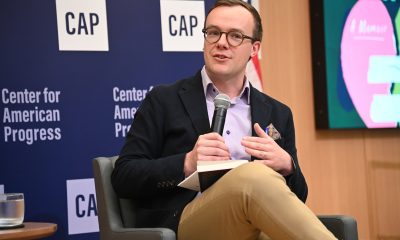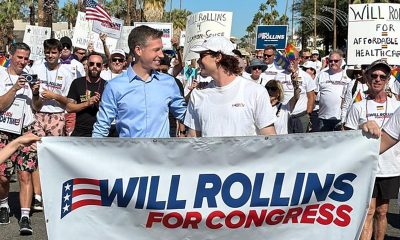Viewpoint
Guardians of Democracy, LGBTQ+ community is at the forefront
This fight is not just about the rights of LGBTQI individuals; it is about the integrity of our democratic system itself
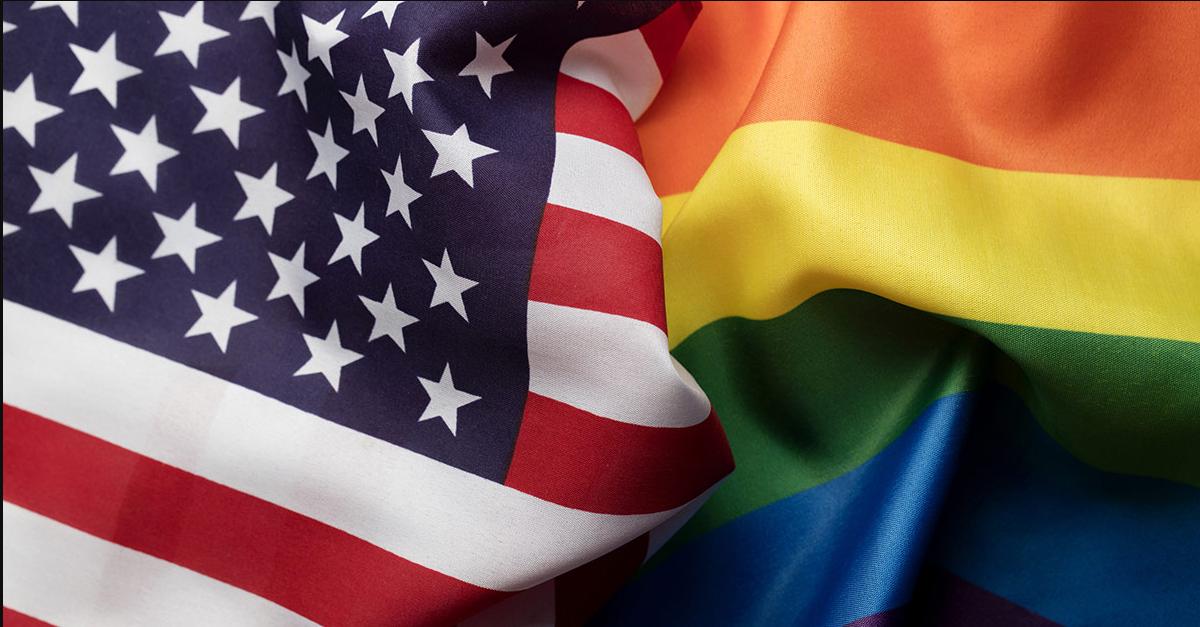
By Laura Friedman & Jirair Ratevosian | BURBANK, Calif. – As we celebrate Pride in Los Angeles, it’s important to reflect on the rich history and ongoing fight for LGBTQI rights in this vibrant city and all around us.
Pride is not just a celebration of who we are and who we love, but a reaffirmation of the values of equality and acceptance that have driven the LGBTQI movement for decades.
The LGBTQI community has been at the forefront of advocating for rights that many take for granted today. From the Stonewall Riots to the recent landmark Supreme Court decisions affirming marriage equality and workplace protections, the LGBTQI movement has consistently pushed the envelope, demanding that the promise of democracy be fulfilled for all citizens.
This fight is not just about the rights of LGBTQI individuals; it is about the integrity of our democratic system itself.
However, as we revel in the progress we have made, we must also recognize the threats that persist. Across the United States and around the world, anti-LGBTQI legislation continues to emerge, threatening the hard-won rights of the community. In some states, laws are being enacted to restrict access to healthcare for transgender individuals, ban discussions of LGBTQI topics in schools, and undermine marriage equality.
Internationally, many countries still criminalize same-sex relationships, subjecting individuals to persecution and violence simply for who they are.
These threats underscore the importance of Pride as more than just a month-long celebration. It is a call to action, a reminder that our fight for equality is intrinsically linked to the broader fight for democracy.
We must stand together, not only during Pride Month but throughout the year, to defend the rights of all LGBTQI individuals. Practicing pride yearlong means advocating for comprehensive policies that protect the community against discrimination in housing or healthcare, supporting LGBTQI organizations, and fostering inclusive spaces where everyone can thrive.
In recent years, we have also seen efforts to suppress voter turnout, particularly targeting marginalized communities. These attempts to undermine our democratic process make it all the more crucial for us to remain civically active and exercise our right to vote. By participating in elections, we can elect leaders who are committed to advancing LGBTQI rights, defending against discriminatory legislation, and promoting a society where everyone is treated with dignity and respect.
The power of the LGBTQI community has been demonstrated time and again, influencing policies and shaping the political landscape to be more inclusive and representative.
Even as we exercise our right to vote, we must remain vigilant against those who seek to divide us and spread misinformation. We have witnessed a troubling rise in efforts to sow discord within the LGBTQI communities in Los Angeles, often fueled by falsehoods and harmful rhetoric.
These divisive tactics are designed to weaken our solidarity and undermine the progress we have made. More than ever, we must double down on our commitment to acceptance, inclusivity, and mutual respect.
LGBTQI individuals who also belong to ethnic minority communities, such as Black, Latino, Asian, or Armenian, face disproportionate systemic injustices. They often find themselves at the crossroads of multiple forms of discrimination.
This harsh reality highlights the urgent need for comprehensive reforms that address both racial and sexual orientation-based biases within our justice system and resources to organizations working to create tolerance in communities. By recognizing and confronting these interconnected issues, we can work towards a society where all individuals, regardless of race or sexual orientation, can live free from fear and persecution.
It was here that the first Pride parade in Los Angeles took place in 1970, marking a significant milestone in our ongoing journey toward visibility and acceptance. As we celebrate Pride this year, let us honor the history of West Hollywood and the legacy of those who fought before us.
Let us commit to carrying their spirit of resilience and advocacy into our daily lives- and to the ballot box this November. By doing so, we can ensure that pride is not confined to a single month but is a constant force driving us toward a more equitable, inclusive, and loving society.
******************************************************************************************
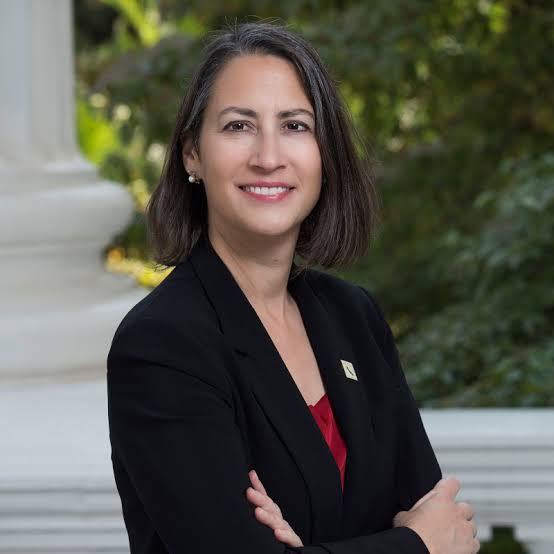
First elected to the California State Assembly in November 2016, Laura Friedman represents the cities of Burbank, Glendale, and Los Angeles, as well as the communities of La Crescenta, Lake View Terrace, Montrose, North Hollywood, Shadow Hills, Sherman Oaks, Sunland-Tujunga, Studio City, Toluca Lake, and Valley Village.
******************************************************************************************
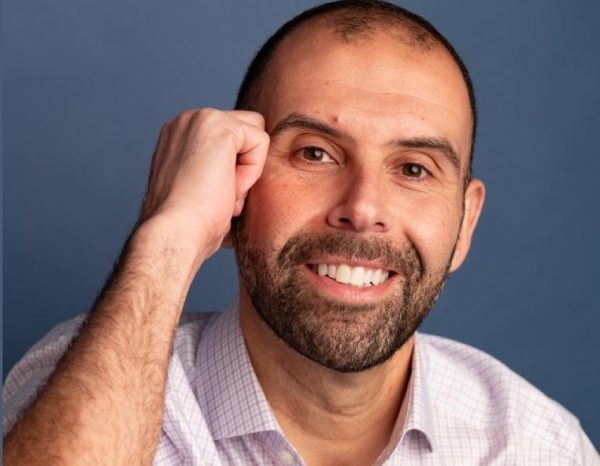
Dr. Jirair Ratevosian is a former legislative director to Congresswoman Barbara Lee (D-CA). Ratevosian, 42, was born in Hollywood, CA, to a Lebanese mother and an Armenian father. He served as a Senior Advisor for Health Equity Policy at the U.S. Department of State and worked for the Office of U.S. Global AIDS Coordinator.
Viewpoint
We are proud of who we are. No law can take that away from us
Uganda’s Anti-Homosexuality Act signed in 2023
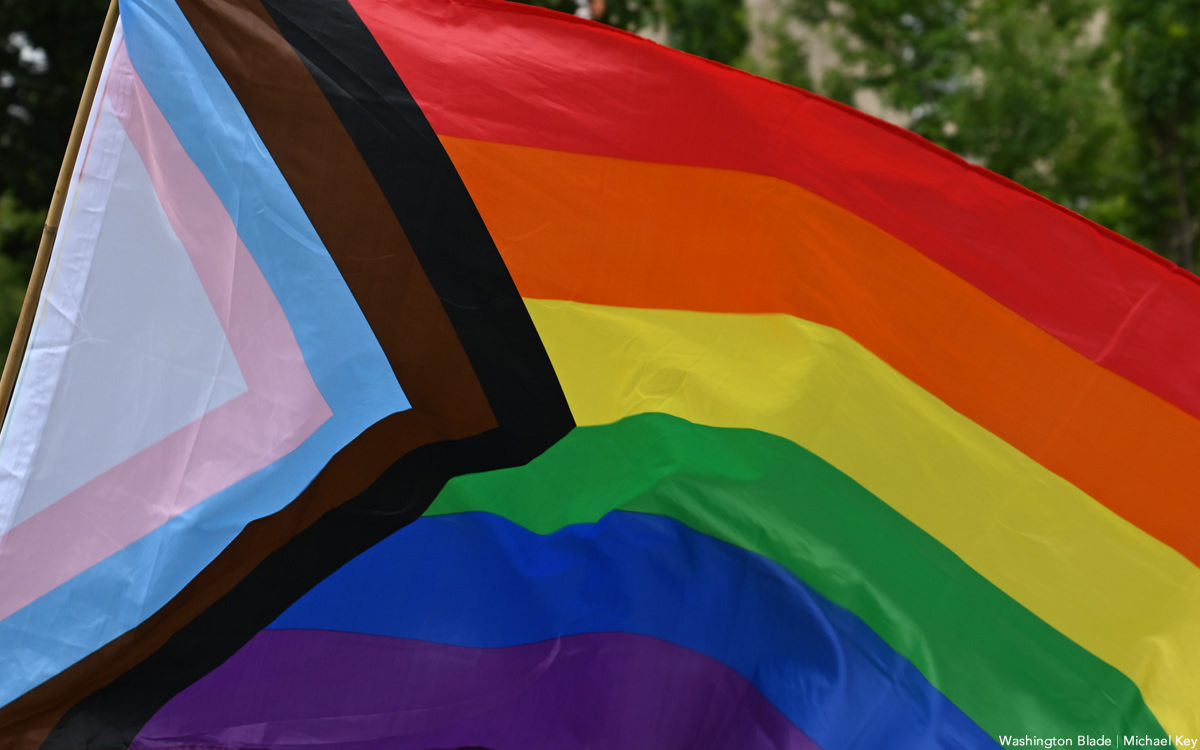
For close to two decades now, I have witnessed the never-ending brutality and stigmatization of key populations, not only in Uganda but across the global Black community.
For too long, LGBTQI+ people in Uganda and across the African continent have been subject to discrimination, social exclusion, and prosecution, which restricts their access to jobs, health care, and much more.
A toxic concoction of prejudice and legislation, including Uganda’s 2023 Anti-Homosexuality Act (AHA), has driven the LGBTQI+ community underground.
In Uganda today, LGBTQI+ people are less likely to seek out necessary, lifesaving services like HIV prevention and treatment. Drug users are regularly denied necessary harm reduction treatments. Sex workers are routinely targeted for assault and extortion by clients and by the police.
Throughout the continent, marginalized communities are contending with intersecting forms of discrimination based on socioeconomic class, gender identity, and sexual orientation.
And so, the cycles of poverty and marginalization roll on, health inequities widen, HIV and other illnesses can spread, and mental health and general well-being suffer.
We founded the Uganda Key Populations Consortium (UKPC) in 2018 to put a stop to all this — to challenge draconian laws like the AHA and advocate for equity and equality for key populations.
Back then, so many of us didn’t have a home — a place where we could sit together and say: This is what we, as a people, need and stand for.
UKPC brings together LGBTQI+ people and people from other key populations to express themselves, learn and build community. We work with partners to create safe spaces — drop-in centers — across the country, where our community can connect, access health services, and make their voices heard.
Thanks in large part to these drop-in centers, we saw a huge increase in the number of people starting antiretroviral therapy, using HIV self-testing tool kits and taking steps to prevent sexually transmitted infections.
We also establish strong relationships with civil society, nongovernmental organizations, and government partners that support us and our work to serve our community, despite constant challenges.
Today, all our work is under threat.
The AHA encourages violent abuse and discrimination against my community. A recent report paints a grim picture: since the AHA was passed, Uganda’s LGBTQI+ community has suffered 434 evictions and banishments, 309 incidents of violence, 92 recorded instances of mental health distress, and 69 arrests.
The law also threatens people supporting LGBTQI+ communities and those providing or seeking basic health services.
Our community organizations have closed dozens of drop-in centers, shutting down a critical link between individuals and their peers — not to mention essential mental and physical health care. We have diverted much-needed funds to make our offices and meeting places safe and secure. We can’t be sure that reaching people online is safe, and that their data and identities will be protected.
Still: we are fighting back. I am fighting back. Our community is fighting back.
Changing the status quo will require more work and support. We need partners like the Global Fund and its Breaking Down Barriers initiative, because those programs empower communities to lead — and give us a voice. They also give us a platform for collective action, to continue working against the violence and hatred that, some days, feels inescapable.
When communities come together, change is possible.
Pride is a moment to celebrate — and to protest. Every June, I take a moment to close my eyes and focus inward, to honor myself and the community that made me. To think about what we’ve accomplished, and the work still left to do. This year is no exception.
We are proud of who we are. No law can take that away from us.
Richard Lusimbo is the founder and director general of the Uganda Key Populations Consortium, and a longtime LGBTQI+ and human and health rights activist. UKPC is a partner of the Global Fund’s Breaking Down Barriers initiative, which aims to reduce human rights-related barriers to health.
Viewpoint
New head of Public Justice, Sharon McGowan, celebrates Pride
As we wave our pride flags this month, we must hold onto the joy of how far we’ve come, and how brave and beautiful our LGBTQ+ community is

By Sharon McGowan | TAKOMA PARK, MD. – June is LGBTQ+ Pride Month, a time dedicated to recognizing and celebrating and walking in solidarity with our diverse community of loved ones and affirming the dignity, humanity, and rights of all people.
It is also a time to reflect on how far we have come and how much work there is still to do in building a more accepting and inclusive world.
This month brings to mind many of our community’s greatest legal victories in the Supreme Court: the striking down of the sodomy laws that made our relationships criminal and the discriminatory so-called “Defense of Marriage Act,” as well as the extension of federal nondiscrimination protections and marriage equality to LGBTQ+ people across the country.
For me personally, June also happens to be the month that I celebrate my own wedding anniversary. While the memories of my wedding continue to bring me joy, I also still remember the day-long drive that my now-wife and I needed to make from our home state of Maryland to Massachusetts, as it was one of only three states that would allow us to marry at the time.
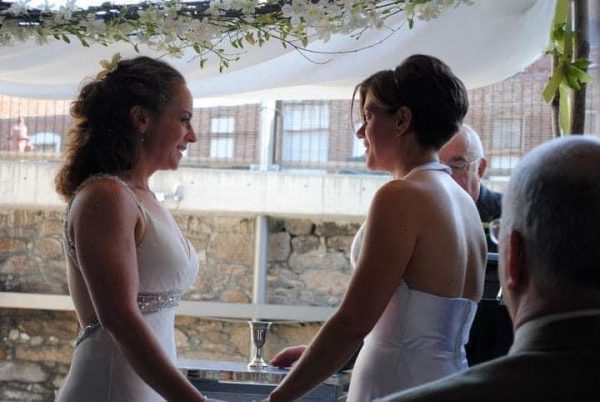
This year, in addition to the pride I feel in being a member of the LGBTQ+ community, I am also tremendously proud to be celebrating Pride Month as the new CEO of Public Justice. Founded in 1982, Public Justice is a nonprofit legal advocacy organization that takes on purveyors of corporate corruption, sexual abusers and harassers, and polluters who ravage the environment. At its core, each of our battles is inspired by a pledge to further equity and equality, end systemic oppression, and protect and expand access to justice for all.
By way of example, Public Justice represented Camika Shelby, whose son Nigel died by suicide at age 15 after experiencing unchecked LGBTQ+ harassment and race discrimination at school.
Along with our co-counsel from Wardenski P.C. and Conchin, Cole, Jordan & Sherrod, Public Justice fought not only to demand justice for Camika but also to bring change to the Huntsville, Alabama, school system that had shirked its responsibility to protect LGBTQ+ students from sex-based harassment.
Because of Camika’s bravery, Public Justice secured an important victory for students in the deep south, where progress for both the LGBTQ+ and Black communities takes longer than it should and always feels tenuous at best.
Cases like Nigel’s demonstrate the urgency of holding institutions accountable for the harms that they cause, either through their actions or their failures to act; and speaking truth to power and demanding accountability from institutions large and small is what we do at Public Justice.
That’s why we, along with Lambda Legal, the National Women’s Law Center and a host of local and national LGBTQ+ partner organization, launched campaigns in all 50 states in 2017 to urge State Departments of Education to follow federal laws protecting transgender students after then-U.S. Secretary of Education Betsy DeVos said she wanted the federal Department of Ed to be “less political,” by which she meant undermining school policies protecting trans young people.
Public Justice is also proud to represent Steve Snyder–Hill and over one hundred other survivors of sexual abuse by long-tenured Ohio State University physician Richard Strauss. First victimized by Dr. Strauss, some of our clients were then lied to by OSU officials determined to deny and cover up Strauss’ decades-long patterns of abuse.
Many in the LGBTQ+ community will recognize Steve’s name and recall him as someone who — just like Public Justice — has never been afraid to speak truth to power. A veteran of the U.S. Army and Army Reserve, Steve publicly came out as gay just after the repeal of “Don’t Ask, Don’t Tell.”
He then found himself in the media spotlight after he was booed for asking a question on extending spousal benefits to LGBTQ+ military members during a Republican debate in 2011. Now, Steve is working with Public Justice and its co counsel, Scott Elliot Smith LPA and Emery Celli Brinckerhoff Abady Ward & Maazel LLP, in this latest chapter of advocacy, designed not only to shed light on the horrific crimes perpetrated by Dr. Strauss but, also to press OSU to make the systemic changes needed to ensure that students can obtain their education in a safe environment, free from sexual harassment and abuse.
Public Justice also fights to protect the ability of people to seek justice in the courts. I know first-hand just how meaningful getting one’s day in court can be. In 2005, I was proud to serve as lead counsel for Diane Schroer, a transgender woman who sued the Library of Congress for withdrawing its job offer to her upon learning that she was transitioning and planned to start work as the woman she is.
The result was a groundbreaking ruling that the federal law prohibiting sex discrimination in employment also protects individuals from discrimination for being transgender, an interpretation of the law that was ultimately ratified by the U.S. Supreme Court, albeit over a decade later.
I cannot help but shudder at the thought of where we would be had Diane not had her day in court: the law might not have continued to develop, and the public would likely not have learned about Diane’s story, which offered people an opportunity to learn more about who trans people are, and how we all lose out when discrimination deprives us of the talents of people like her.
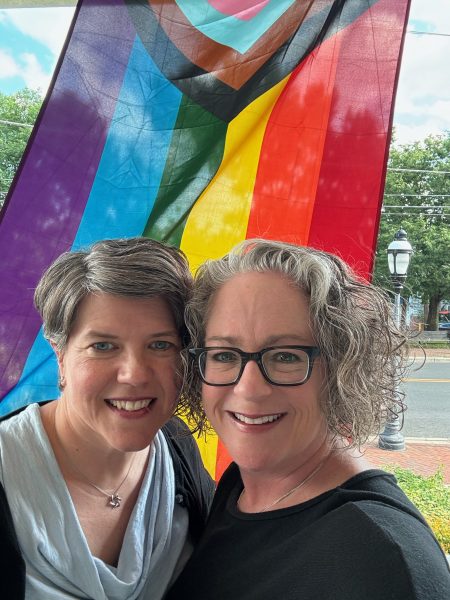
That’s just one example of why Public Justice’s core mission of ensuring access to justice – and particularly to the courts – for everyone, and not just a privileged and powerful few, is so essential for us all.
So, as we wave our pride flags this month, we must hold onto the joy of how far we’ve come, and how brave and beautiful our LGBTQ+ community is. I’m proud that Public Justice has played a role in our progress and is an organization that will never be complacent in the face of injustice, whether against the LGBTQ+ community or any other community targeted for abuse or vulnerable to exploitation.
Apropos of the season, I am filled with pride at being the first openly LGBTQ+ leader of this storied organization and look forward to putting that pride into action 365 days a year. This Pride, I invite my LGBTQ+ family, as well as our invaluable friends and allies, to learn more about the critical work that we here at Public Justice are doing to create a more just, fair, and equitable world, by visiting us at www.PublicJustice.net.
Just as pride is a year-round affair, so too is our quest for justice — we hope you’ll join us.
******************************************************************************************
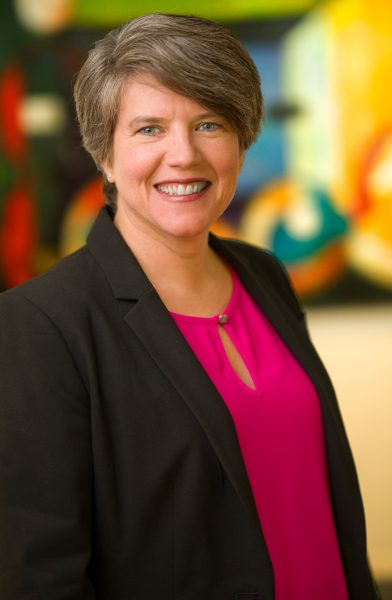
Sharon McGowan is the Chief Executive Officer of Public Justice, leading its legal and foundation staff, and guiding the organization’s litigation and advocacy work. Prior to joining Public Justice, Sharon served as a partner with Katz Banks Kumin, and previously served as Chief Strategy Officer and Legal Director for Lambda Legal Defense and Education Fund, the nation’s oldest and largest LGBTQ+ legal organization.
McGowan also held several senior positions within the Obama Administration, including within the Civil Rights Division of the U.S. Department of Justice and the U.S. Office of Personnel Management, where she helped implement nationwide marriage equality across the federal government.
Viewpoint
L.A. Pride and WeHo Pride: A Tale of Two Cities
Right now there is fragmentation, disunity, and political apathy in the LGBTQ community in L.A. and elsewhere

By Don Kilhefner | Los Angeles is the only city in the world with two major LGBTQ Pride celebrations, largely within walking distance of each other. The two adjacent events serve as a stark reminder of the class and race divides in the L.A. LGBTQ community and the struggle between the elite capture of Pride by West Hollywood and a semblance of grassroots and community-based organizing by Los Angeles Pride, recently clawed back from WeHo.
On Sunday, June 2, the City of West Hollywood holds its Pride parade along with a week-long festival. One week later, on Sunday, June 9, Los Angeles Pride, about a half mile away from where the WeHo Pride parade started the week before, LGBTQ people and their allies will march down Hollywood Blvd., site of the first Pride march in June 1970, then called Christopher Street West—Gay Freedom Day—named after the street in Greenwich Village in New York City where the Stonewall Inn was located.
In case you haven’t been paying attention, therein lies an important tale of two cities with vastly different community Pride narratives representing two different political/economic agendas.
I helped to organize the first two Pride celebrations in Hollywood and have closely observed and written about the evolution of those events during the past half century. The foundational truth about Pride celebrations across the U.S. in the month of June is that those celebrations commemorate the June 28, 1969, Stonewall Rebellion, the spark that ignited the fire that became the Gay Liberation movement, commencing LGBTQ people’s long march toward freedom. That foundational truth about Pride has been buried today under the superficial gloss of a gigantic, hedonistic party, tons of glitter, and relentlessly making money, and the roots of Pride have been danced over mindlessly and recklessly.
Recently, as I was checking out at my neighborhood Trader Joe’s in Hollywood, I asked the 20-something gay man who was my cashier how he felt
about having two Pride celebrations in nearly identical locations. He replied earnestly that it truly baffled him why there were two instead of one united event. He was excited when I promised him a copy of this article the next time I saw him.
L.A. Pride: The Macro Historical View
Early in April 1970, Morty Manford reached out to the Los Angeles Gay Liberation Front by telephone as a representative of the New York City GLF requesting that nascent Gay Liberation groups across the country organize some kind of event to commemorate the first anniversary of the Stonewall Rebellion on Sunday, June 28, 1970—a few months away. New York GLF was planning a march. Morris Kight proposed to the Sunday afternoon GLF meeting that such an event be planned, it was adopted unanimously, and Kight would take the leadership on that GLF involvement.
Rev. Troy Perry of the Metropolitan Community Church and Kight became central to making the first Pride event in L.A. a reality. At first, a sidewalk protest along Hollywood Blvd. was envisioned and then grew in scope to an audacious march on Hollywood Blvd. itself. The L.A. City Police Commission, after a furious anti-gay tirade by Police Chief Ed Davis, refused a permit to use the street for such a scurrilous event. The ACLU went into court, forcing the LAPD to issue a permit, which ended up spitefully as permission for the use of only one lane on Hollywood Blvd. On June 27, the Saturday before the Sunday event, the Los Angeles Times, then a publication with over 1 million subscribers, ran an article about the ACLU victory, providing all the publicity needed to make the march a success.
That first L.A. Pride march started out from McCadden Place in one lane on Hollywood Blvd., and when spectators later seized the entire boulevard, LGBTQ people proudly and enthusiastically marched forward in an event that had never ever been seen before in L.A and into the history books. Estimates of attendance ranged between 20,000 and 35,000, clearly on the high side; the LAPD officially reported 2,000, definitely on the low side. The rest is history.
Handwritten draft of 1972 L.A. Pride flyer found in FBI files on its surveillance of L.A. GLF.
Subsequently, the Stonewall commemorative event in L.A. was organized by the all-volunteer, not-for-profit, grassroots, community-based Christopher Street West Committee. As such, the CSW committee had the usual periodic ego performers, episodic dramas, political correctness debates, and financial woes. But woebegone, every year, somehow, the event occurred and grew in size and solidarity. The Gay Liberation organizing was working.
For eight years (1970-1978), Pride occurred on Hollywood Blvd with not much distinction made between participants and spectators—people just spontaneously joined in off the sidewalks. More conventional gay people were shocked in 1970 with GLF’s paper mache replica of a Vaseline jar, the most popular sexual lubricant at the time, with a big sign in front of it repeating a popular Kentucky Fried Chicken commercial at the time, “Ain’t nothing good without the grease,” and 1971’s Cockapillar, similar to a dancing Chinese New Year’s Dragon, with the dragon head replaced by the head of a penis with seductive lips and eye lashes, expanding and contracting, to the crowd’s delight. Since the first two celebrations, the Respectability Police of CSW made sure nothing too radical (or too gay) ever entered again.
1970 First Pride: Vaseline jar with KFC and GLF saying, “Ain’t nothing good without the grease.”
In 1974, a festival was added to the Sunday march, making Pride a weekend affair.
Then, in 1979, CSW took the blue pill and moved the Stonewall celebration to Santa Monica Blvd. in West Hollywood. It was a controversial decision dividing the CSW committee, but a majority vote won out. The winning argument was that WeHo was more gay friendly, even though Hollywood Blvd. had always been gay friendly as well. The real reason was financial. Then, WeHo was an unincorporated part of Los Angeles County, within Supervisor Ed Edelman’s district, and Edelman was extremely gay friendly, providing more County financial support for expensive ancillary services like police, traffic control, safety, and clean-up. In 1984, the independent City of West Hollywood was incorporated and took over support when the County’s ended.
This transition from Hollywood to West Hollywood was critically important, particularly for the heart and soul of the Stonewall commemoration. WeHo, with about 30,000 residents in the late 1970s and 1.9 square miles in size, was very affluent, with few buildings then taller than two stories, and having a small-town feel. It was definitely a whites-only residential town with white supremacy proclivities, resulting in GLF and others demonstrating during the 1970s against the white racism and sexism of its gay clubs and bath houses. WeHo has usually addressed race and class issues with tokenism and window dressing. The white power structure remains intact.
Today, the city of West Hollywood, its developers, corporate businesses, and caterers of luxury products are extremely wealthy with beautifully designed, seven-story hotels, spacious office buildings, and expensive residential towers everywhere, a largely white, wealthy, entitled enclave surrounded by the city of Los Angeles, which is majority people of color, affordable housing deprived, and a working poor, cheap labor pool for WeHo and Westside homes and businesses.
Since 1979, the character and development of CSW’s L.A. Pride in West Hollywood has largely paralleled the economic development of WeHo—follow the money. Gradually, sometimes imperceptibly, the grassroots CSW L.A. Pride celebration occurring in WeHo evolved into a CSW and WeHo event, and then the designation “L.A.” slowly disappeared into the mists and it became WeHo Pride with the names “CSW” and “Los Angeles Pride” largely invisible. The CSW Committee and L.A. Pride were no longer the shot callers.
1971: Poster for second L.A. Pride printed by Peace Press, a radical anti-Vietnam War printer, because other printers refused to print it.
Today, WeHo Pride is controlled by the City of West Hollywood and the West Hollywood Chamber of Commerce and is organized by a well-paid event planner with no community involvement whatsoever, not a single blade of grassroots to be found anywhere. The City of West Hollywood advertises WeHo Pride worldwide as an LGBTQ destination of importance in order to fill its luxury hotels and high-end restaurants, clubs, dance halls, and bars. In 2017, a research study indicated that Pride weekend in WeHo generated about $5 million for businesses and the city there. In 2024, it will probably be double that figure.
In June 2019, when Pride events across the U.S. were celebrating the 50th anniversary of the Stonewall Rebellion and the beginning of the Gay Liberation movement, WeHo Pride made no mention of Stonewall, as if the event had never happened. When I confronted the Executive Director of Pride about its advertising not mentioning a word about the 50th anniversary of Stonewall, she condescendingly replied that one of the revenue concessions at the Pride festival, a beer tent, would be called “Stonewall” and I could sit in it and talk about Stonewall if I wished.
L.A. Pride: The Micro Historical View
As Pride in Los Angeles entered the 21st century more LGBTQ people criticized and were dissatisfied with WeHo Pride, feeling like it really didn’t represent them or look like the LGBTQ community in Los Angeles. Attendance was slowly decreasing each year. The event had become apolitical and turned into a largely commercial hospitality and entertainment event. The city of West Hollywood, rolling in cash, paid little attention to community feedback and did exactly what it wanted to do because it could. Then two seismic Pride revolts shook and shook up the celebration.
In 2017, after the election of Donald Trump, an LGBTQ community uprising took over Pride, with CSW’s cooperation—whites and people of color working together politically—and returned the event to its historic origins on Hollywood Blvd. It was renamed an LGBTQ Resist March, not a Pride Parade. One of its hashtags was #Own Your Pride. The march ended with a political rally in West Hollywood whose speakers included Rep. Maxine Waters, Rep. Adam Schiff, and Rep. Nancy Pelosi. The celebration looked like L.A. for a change. In 2018, Pride reverted to the same old same old.
The second seismic jolt with Pride resulted in the aftermath of the May 25, 2022, murder of George Floyd by Minneapolis police when the U.S. erupted in outrage with Black Lives Matter as a catalyst. When West Hollywood announced a march about Floyd’s murder co-sponsored with BLM without a consult or the consent of BLM—Whites telling Blacks what to do—then the shit hit the fan, as they say. Outrage prevailed. People of color and their allies exerted CSW control and quickly and radically separated Los Angeles Pride from WeHo Pride.
In June 2022, Los Angeles Pride returned its original home on Hollywood Blvd. and has marched there ever since, adding an entertainment event called Pride in the Park located in the Los Angeles State Historic Park in downtown L.A., adjacent to Chinatown. This year Ricky Martin, a gay man, will be the headliner.
A Proposal for LGBTQ Pride Unity in Los Angeles
The old radical call out is historically true: “A people united will never be defeated.” No one talks about it publicly; however, right now there is fragmentation, disunity, and political apathy in the LGBTQ community in L.A. and elsewhere, with political performance art reduced to mere show biz entertainment.
An LGBTQ movement has largely disappeared as assimilation rules. The extreme Right is skillfully organized and coordinated, even Supreme Court judges openly opining about it, toward rescinding every civil right LGBTQ people have struggled to achieve since Stonewall. Disunity is something LGBTQ people simply cannot indulge right now, including the bifurcation of one of the central political and spiritual organizing ceremonies unifying the LGBTQ tribal (“tribal” used positively) community—Los Angeles Pride.
As a Gay Tribal Elder, I respectfully make the following constructive suggestions to the L.A. LGBTQ community. My sole intention is the united forward movement of Pride and the welfare of LGBTQ people in Los Angeles.
[1.] That there will be one Sunday afternoon Pride celebration in Los Angeles
on Hollywood Blvd. that will be the centerpiece of Pride weekend, that
would integrate WeHo Pride into the event, that would be called a march,
and that a serious political message would be included.
[2.] That the Saturday before the Sunday Los Angeles Pride march be turned
over to West Hollywood to do what WeHo does best.
[3.] That the Los Angeles Pride march convene at 10 a.m., march at noon, and
end up in WeHo with a community Pride celebration with all the
multitudinous ways LGBTQ people know how to have a good time.
It’s all achievable if the best interests and wellbeing of LGBTQ people, united, becomes the central organizing principle of community Pride and homeless Stonewall is welcomed back into the circle of community.
Will the circle be unbroken?
******************************************************************************************
Don Kilhefner, Ph.D., is a pioneer Gay Liberationist and for 55 continuous years a gay community organizer in Los Angeles and nationally.
Viewpoint
Journalists are not the enemy
Wednesday marks five years since Blade reporter detained in Cuba

HAVANA — Wednesday marked five years since the Cuban government detained me at Havana’s José Marti International Airport.
I had tried to enter the country in order to continue the Washington Blade’s coverage of LGBTQ+ and intersex Cubans. I found myself instead unable to leave the customs hall until an airport employee escorted me onto an American Airlines flight back to Miami.
This unfortunate encounter with the Cuban regime made national news. The State Department also noted it in its 2020 human rights report.
Press freedom and a journalist’s ability to do their job without persecution have always been important to me. They became even more personal to me on May 8, 2019, when the Cuban government for whatever reason decided not to allow me into the country.
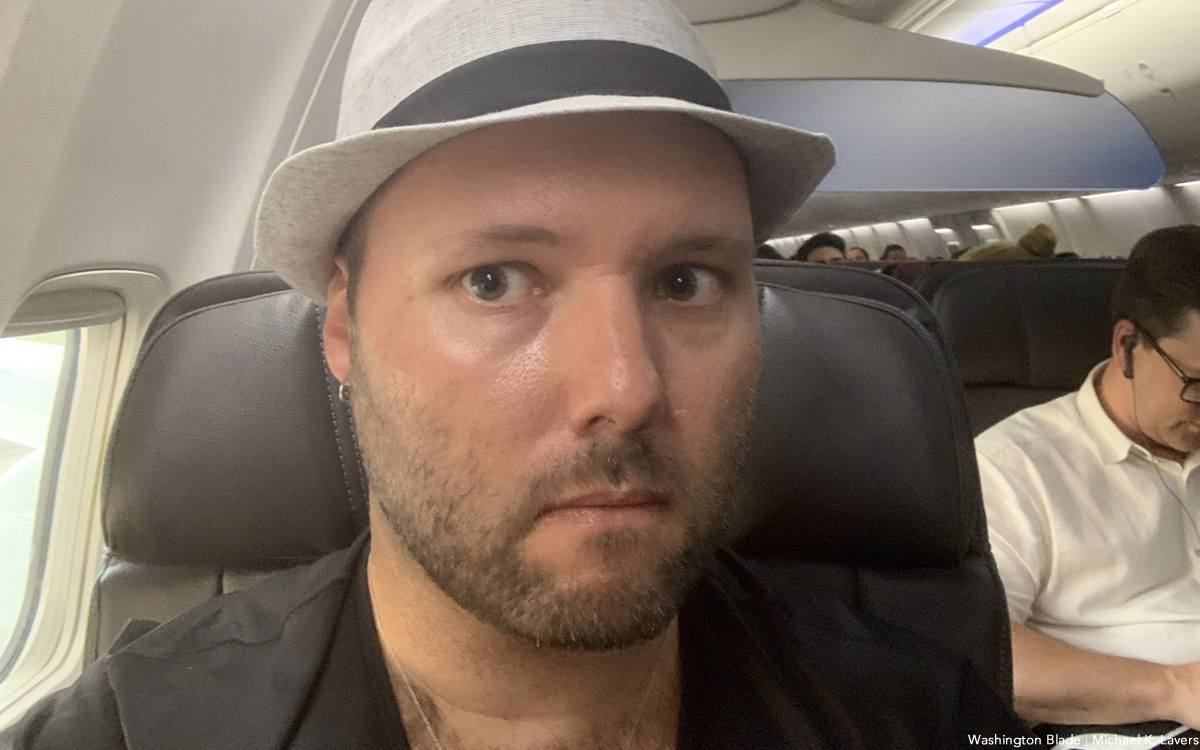
‘A free press matters now more than ever’
Journalists in the U.S. and around the world on May 3 marked World Press Freedom Day.
Reporters without Borders in its 2024 World Press Freedom Index notes that in Cuba “arrests, arbitrary detentions, threats of imprisonment, persecution and harassment, illegal raids on homes, confiscation, and destruction of equipment — all this awaits journalists who do not toe the Cuban Communist Party line.”
“The authorities also control foreign journalists’ coverage by granting accreditation selectively, and by expelling those considered ‘too negative’ about the government,” adds Reporters without Borders.
Cuba is certainly not the only country in which journalists face persecution or even death while doing their jobs.
• Reporters without Borders notes “more than 100 Palestinian reporters have been killed by the Israel Defense Forces, including at least 22 in the course of their work” in the Gaza Strip since Hamas launched its surprise attack against Israel on Oct. 7, 2023. Media groups have also criticized the Israeli government’s decision earlier this month to close Al Jazeera’s offices in the country.
• Wall Street Journal reporter Evan Gershkovich, Washington Post contributor and Russian opposition figure Vladimir Kara-Murza and Radio Free Europe/Radio Liberty’s Alsu Kurmasheva remain in Russian custody. Austin Tice, a freelance journalist who contributes to the Post, was kidnapped in Syria in August 2012.
• Reporters without Borders indicates nearly 150 journalists have been murdered in Mexico since 2000, and 28 others have disappeared.
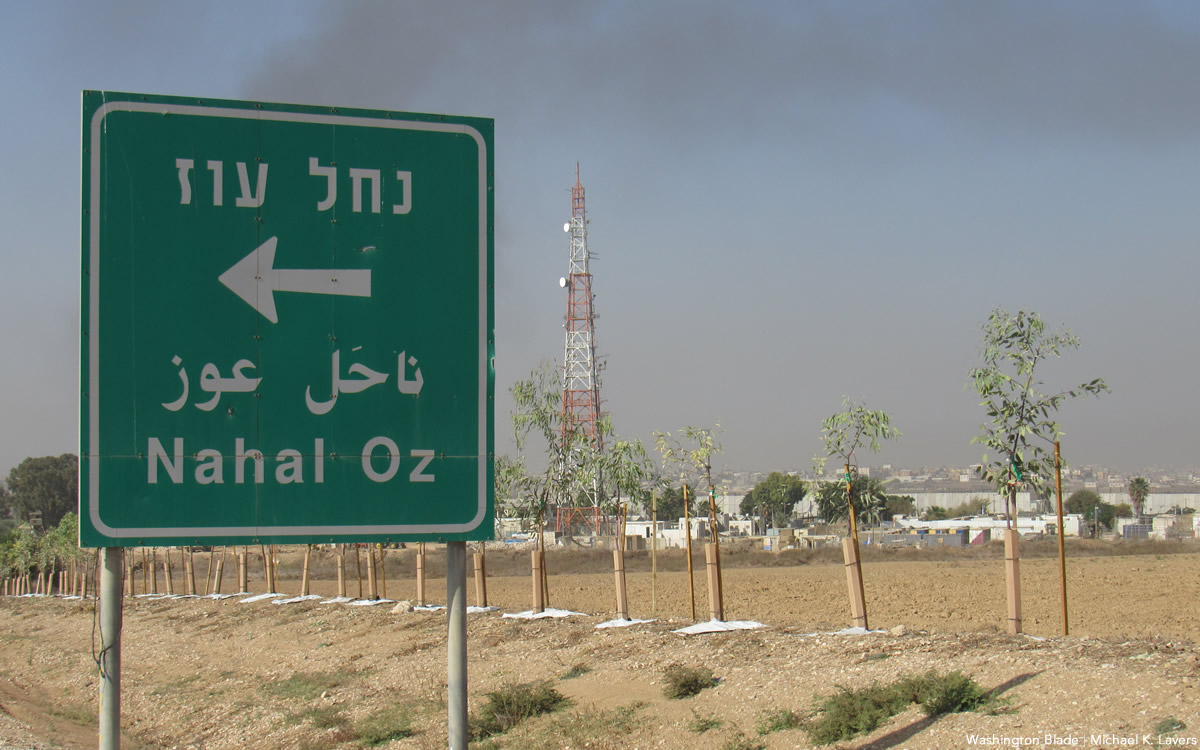
Secretary of State Antony Blinken in his World Press Freedom Day notes more journalists were killed in 2023 “than in any year in recent memory.”
“Authoritarian governments and non-state actors continue to use disinformation and propaganda to undermine social discourse and impede journalists’ efforts to inform the public, hold governments accountable, and bring the truth to light,” he said. “Governments that fear truthful reporting have proved willing to target individual journalists, including through the misuse of commercial spyware and other surveillance technologies.”
U.S. Agency for International Development Administrator Samantha Power, who is a former journalist, in her World Press Freedom Day statement noted journalists “are more essential than ever to safeguarding democratic values.”
“From those employed by international media organizations to those working for local newspapers, courageous journalists all over the world help shine a light on corruption, encourage civic engagement, and hold governments accountable,” she said.
President Joe Biden echoed these points when he spoke at the White House Correspondents’ Association Dinner here in D.C. on April. 27.
“There are some who call you the ‘enemy of the people,'” he said. “That’s wrong, and it’s dangerous. You literally risk your lives doing your job.”
I wrote in last year’s World Press Freedom Day op-ed that the “rhetoric — ‘fake news’ and journalists are the ‘enemy of the people’ — that the previous president and his followers continue to use in order to advance an agenda based on transphobia, homophobia, misogyny, islamophobia, and white supremacy has placed American journalists at increased risk.” I also wrote the “current reality in which we media professionals are working should not be the case in a country that has enshrined a free press in its constitution.”
“A free press matters now more than ever,” I concluded.
That sentiment is even more important today.
Viewpoint
My reflections on the death of LGBTQ Icon David Mixner
Thank you, David Mixner. It’s time for a well-deserved rest in peace and to see all your old friends again
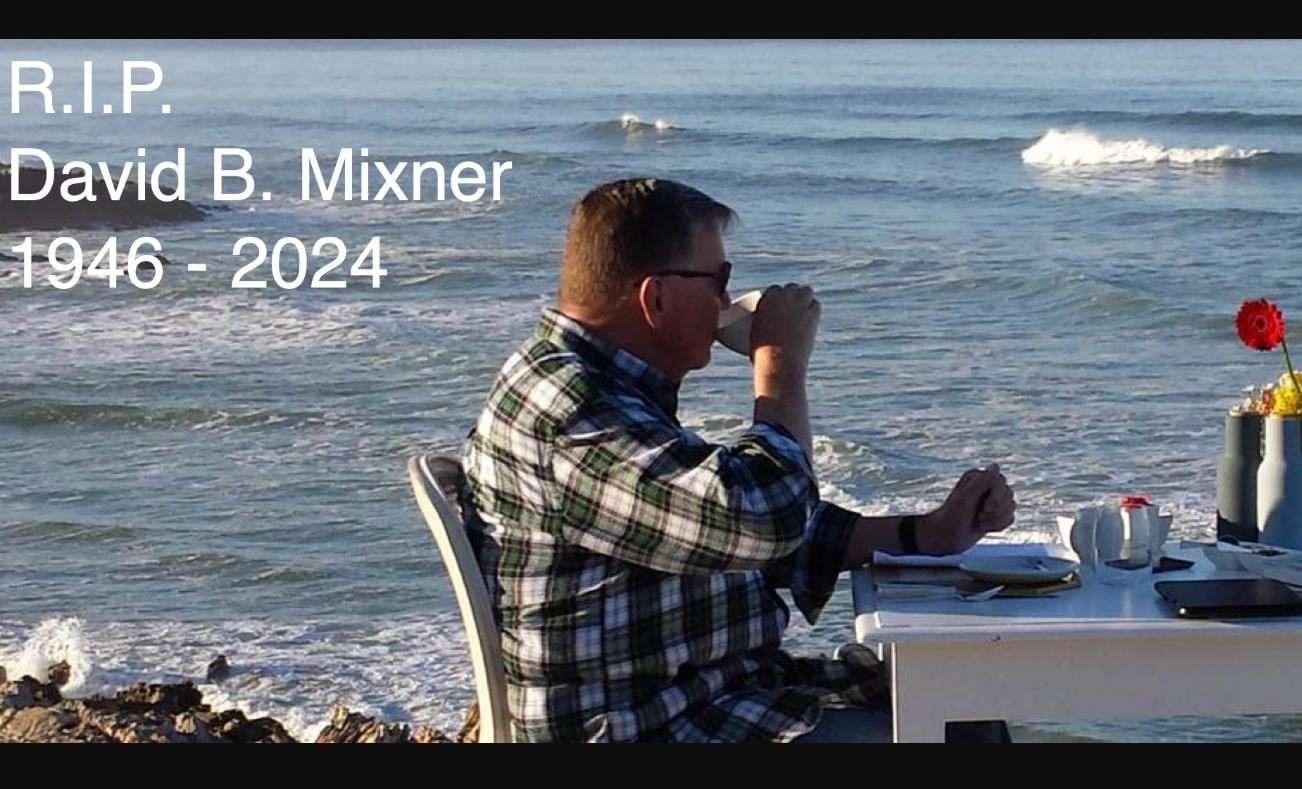
By Karen Ocamb | WEST HOLLYWOOD – All week, I’ve been thinking of calling David Mixner. We needed to catch up and I wanted to double-check my memory of moments in 1991/92 during which he and ANGLE led the gay movement to elect his friend Bill Clinton as the new President of the United States. I knew he was not in the best shape – but part of me thought he’d be around forever. Wishful thinking doesn’t make it so.
I have lots of powerful memories of Mixner, starting in 1986 with the two of us sitting on a slope in Griffith Park watching scores of peace activists preparing to depart on The Great Peace March for Global Nuclear Disarmament. We talked about being clean and sober and our hopes and dreams – mostly an end to all our friends dying.
Years later, after Michael Callen died in late 1993, Mixner and I huddled at yet another memorial in West Hollywood. I produced many memorials for our dead 12 Step friends and he was often the speaker. We gave each other permission to take a break. We told each other that our dead friends would understand.
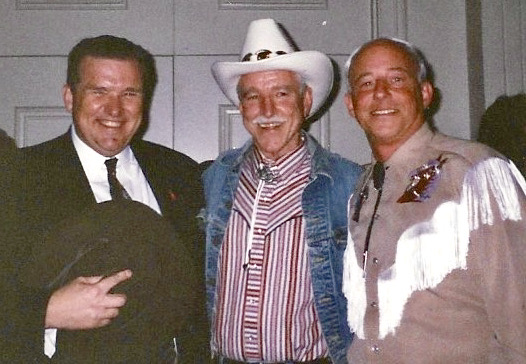
(Photo by Karen Ocamb)
As a reporter for the gay press, I interviewed David A LOT, especially about pressing Clinton to lift the ban on gays and lesbians serving opening in the military. He was an ardent pacifist – a follower of non-violence through Gandhi and Martin Luther King Jr. so why pick the military as an issue to fight for? He said it was our right to serve as patriotic Americans and to be able to access all the benefits that come with it – such as education through the GI Bill and the possibility of leaving poverty, domestic violence and routine bullying to see the world.
But the moment that shines the brightest for me after hearing about David’s death tonight is the night Bill Clinton stopped in at a small ANGLE (Access Now for Gay & Lesbian Equality) reception before a major fundraiser at the Beverly Wilshire Hotel on Feb. 28, 1992.
David, Jeremy Bernard, Scott Hitt, Randy Klose and others had come up with this creative MECLA-like idea to make sure that the Clinton campaign knew that the pledged $75,000 they raised would be clearly designated as GAY MONEY. And it was – with a clear bold thank you in the program book for the fundraiser thrown by Warren Christopher and Mickey Kantor, who acknowledged ANGLE from the stage.
This was a big deal at a time when the Reagan-Bush administration had embraced political evangelicals who said AIDS was God’s punishment for homosexuality.
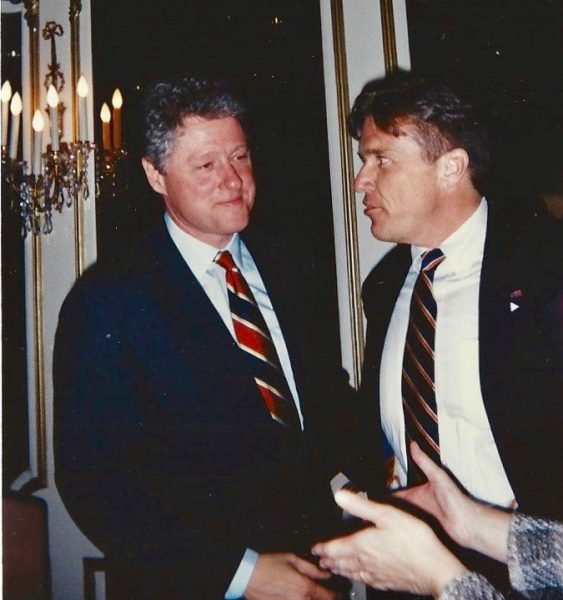
(Photo by Karen Ocamb)
Clinton was late to the reception – but his whole campaign was frenzied after the Gennifer Flowers story broke a month earlier. He and Hillary barely survived a 60 Minutes interview – but he came in second in a crowded field in the New Hampshire Primary 10 days before the fundraiser. He declared himself the “Comeback Kid” – and David was determined to convince every gay person everywhere to support him.
That night, in a conference room with 60 gay people – some of whom would go on to work on Clinton’s campaign and in his administration – David whispered in Clinton’s ear like a political strategist, treated him like a friend, and served as an LGBTQ ambassador for all our hopes and dreams to the man who would become the next President.
And Clinton let down his guard and responded. As David wrote in Stranger Among Friends: “The room was very quiet. We realized he was reaching out to us by reaching deep inside himself. He had made the link between his feelings of isolation from his neighbors with our feelings of isolation from society.”
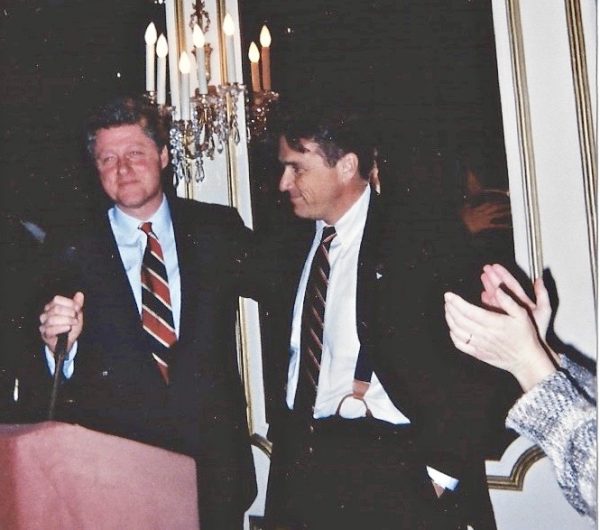
Thanks to David Mixner, Bill Clinton saw us as “a people,” not just a culture war issue. Mixner and ANGLE created a wave of voters, raised $1.3 million in Gay & Lesbian Money for the campaign, and started making demands – chief among them was an AIDS Czar and for Clinton to recognize us in his Democratic Convention speech. Mixner said he and Diane Abbitt held their breath waiting for the magic words – letting the campaign know that if Clinton didn’t SAY the words, they all would make a big show for the TV cameras and walk out. Clinton acknowledged us.
There are so many David Mixner moments, including his official break with Clinton protesting the betrayal of “Don’t Ask, Don’t Tell.”
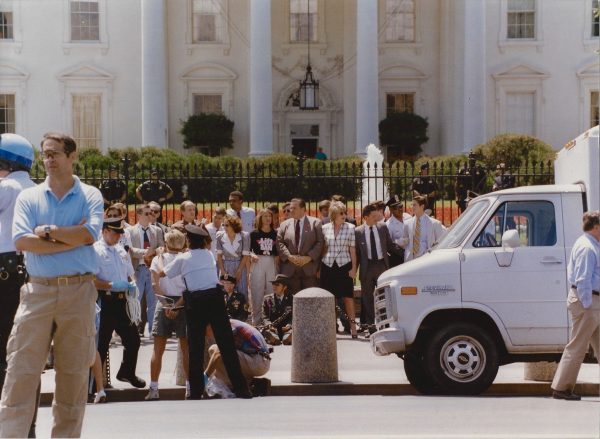
(Photo courtesy Jeremy Bernard)
Clinton did follow up on his promise to fight AIDS – hard not to do after he and Hillary visited the Names Project AIDS Memorial Quilt during the 1993 March on Washington.
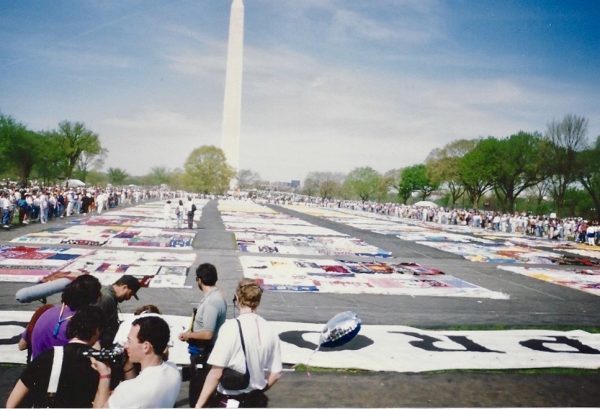
But to me, tonight, I’m grateful that he lifted up our humanity so we could feel full equality and full of possibility if just for a spell before hateful politics once more took first class citizenship rights away. What would have happened had Hillary won?
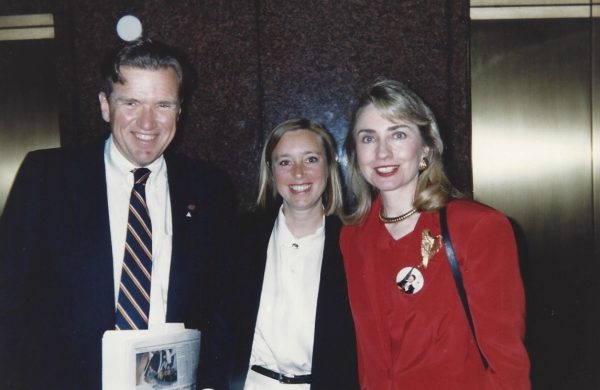
Thank you, David Mixner. It’s time for a well-deserved rest in peace and to see all your old friends again.
****************************************************************************************
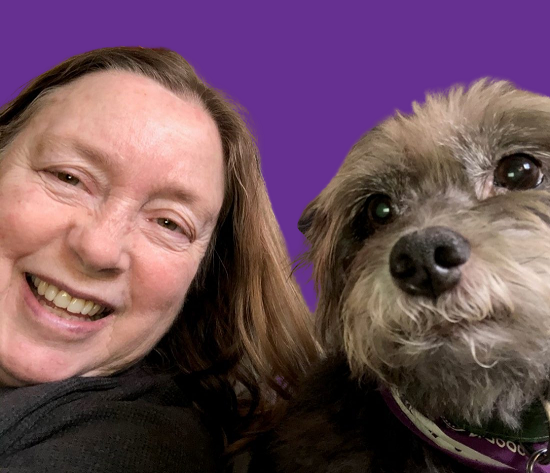
Karen Ocamb is the former news editor of the Los Angeles Blade. She is an award-winning journalist who, upon graduating from Skidmore College, started her professional career at CBS News in New York.
Ocamb started in LGBTQ+ media in the late 1980s after more than 100 friends died from AIDS. She covered the spectrum of the LGBTQ+ movement for equality until June 2020, including pressing for LGBTQ+ data collection during the COVID pandemic.
Since leaving the LA Blade Ocamb continues to advocate for civil rights and social, economic, and racial justice issues.
She lives in West Hollywood, California with her rescue dog Pepper.
Viewpoint
Lawmaker ejected trans Kansans- her hearing was a disgrace
Rep. Brenda Landwehr, R-Wichita, threw several people opposed to anti-transgender bills out of a Kansas House hearing
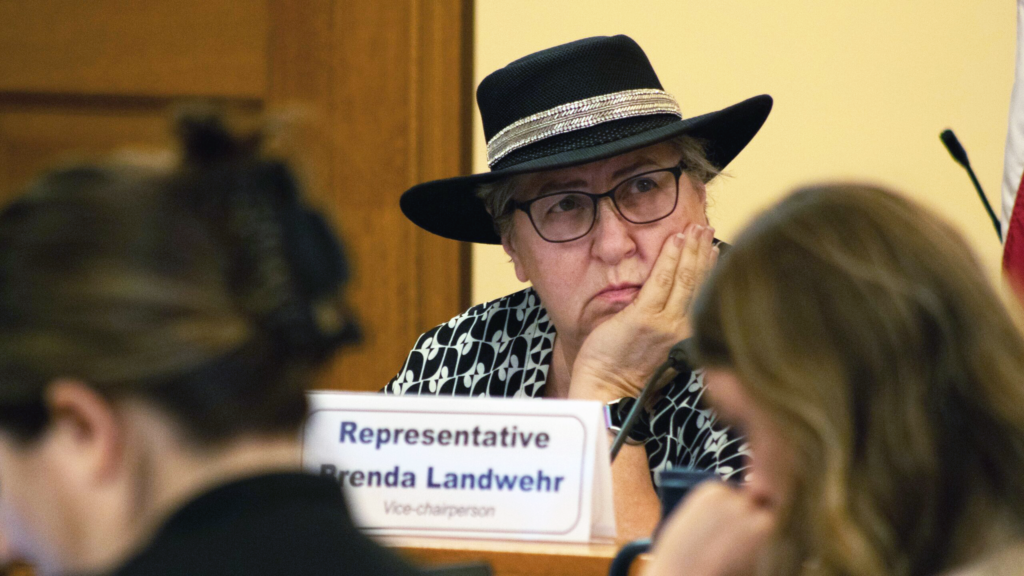
By Clay Wirestone | TOPEKA, Kan. – Rep. Brenda Landwehr: What you did to LGBTQ+ Kansans at your Thursday hearing in the Kansas Statehouse has no excuse.
Your committee was considering bills that would criminalize lifesaving care for children. The mere act of debating House Bill 2791 and House Bill 2792 harmed transgender kids across the state. A host of advocates and activists, parents and children, told you this through testimony and email messages, opinion columns and public speeches.
You didn’t listen.
Instead, you issued imperious orders. You expelled prominent LGBTQ+ advocates after one knocked over a water bottle, threatened speakers with capitol police, and cut off testimony that offended you.
You added to the abuse. You negated compassionate souls who were looking out for themselves and those they loved.
“It was more than unnecessary. It was shocking,” said Melissa Stiehler, advocacy director for youth voter engagement organization Loud Light, describing the ejection of one advocate.
A couple of folks used strong words in addressing you and your compatriots on the House Health and Human Services Committee. That’s because the bill you were hearing could lead to the deaths of their friends. They didn’t make that choice. You did. The least you could have done for these brave souls was to sit and listen, as you did when you allowed HB 2791 sponsor Rep. Ron Bryce, R-Coffeyville, to call gender reassignment surgery the equivalent of a lobotomy.
But you were too cowardly for that.
This isn’t a joke. This isn’t a show. The Kansas Statehouse doesn’t serve as a stage for you to preen and prattle and make demands of those you see as less than. You serve the people. As a Republican representing Wichita’s District 105, you owe the people better.
LGBTQ+ people have suffered unspeakable torture from the hands of people just like Landwehr for decades. Kansas criminal code still classifies gay intimacy as a misdemeanor. Law enforcement has often played a prominent role in enforcing hate. The fact that the representative would look to officers to do her dirty work shows that the old ways — the old familiar use of the state to enforce one person’s morality on another — run deep.
Watch ignominious moments from the hearing in the video below. You can witness the whole debate here.
Firsthand accounts
With that preamble off my chest, let’s step back a moment.
LGBTQ+ advocates had prepared for this hearing. They submitted a flotilla of testimony and packed both the hearing room and an overflow space. Emotions, as you might expect, ran high. The situation called for a committee chair who mixed both empathy with those speaking and determination to move the hearing along.
In preparing this column, I spoke and corresponded with three people who sat in that room Thursday. They watched the chairwoman up close as she booted or silenced at least four LGBTQ+ advocates.
“The hearing started off very curt and with very vague instructions to attendees and conferees,” said Iridiscent Riffel, a transgender activist who has also written columns for Kansas Reflector. She was later ejected and threatened with a police escort for her testimony. “We were treated as if we were miscreants for simply attending a hearing that would determine our rights. We were told that any noise or disruption would end with us being kicked out.”
Riffel had attended a hearing Thursday morning in the Senate Public Health and Welfare Committee and said there was little difference in the audience between the two. Yet Landwehr regularly interrupted the afternoon hearing and call for order.
“Landwehr was trying to create a problem that didn’t exist with an excuse to kick us out,” Riffel said. She added the chairwoman “was engaging in providing extra support to supporters of the bill, while shutting down speech by those in opposition of the bill, the very community that would be impacted.”
Taryn Jones works as the lobbyist for Equality Kansas, the state’s preeminent advocacy group for LGBTQ+ residents.
She was also one of those removed.
“At one point during the hearing, I picked up my water bottle and as I sat it down whispered something to the person sitting next to me,” Jones said. “Rep. Landwehr banged her gavel down and kicked us out saying that she had warned people in the committee room about disruptions. However, the people in the row in front and back of me hadn’t heard anything and seemed very confused by what was going on.”
She highlighted the central injustice of the entire affair: “I find it curious that out of the four-five people that Landwehr kicked out or silenced during the hearing, they were all people opposing the bill. How is this democratic? Well, it’s not. Does Landwehr really want the optics of kicking out the Equality Kansas Lobbyist for water and a whisper on a hearing to ban trans healthcare?”
I can answer that question: She doesn’t care about the optics.

Unequal treatment
Loud Light’s Stiehler watched the entire hearing from the room and corroborated both Jones’ and Riffel’s accounts.
“I did notice many anti-trans activists engage in more disruptive behavior than (the water bottle incident) without any reprimand from the chair, such as cell phones going off, general murmuring, or bringing their signs into the committee room to keep at their feet,” she said. “One bill proponent held up his sign and was asked to leave after Rep. Susan Ruiz pointed him out to Chair Landwehr, but returned to the committee room shortly after. That was the only enforcement of the chair’s rules on any proponent.”
Stiehler watched as Bryce claimed that gender-affirming care somehow equated to lobotomies. Such a statement insulted all the transgender people in the room. Yet Landwehr never asked them to revise their testimony or leave. That testimony came alongside a mountain of “discredited studies and factually inaccurate statistics,” to use Stiehler’s words.
As I’ve noted in this space before, all major medical groups and health care groups support gender-affirming care for those younger than 18.
Not one or two. Every one.
That doesn’t matter to Landwehr or those supporting these grotesque proposals. The chairwoman gave them a wide berth to demean, disparage and demonize the transgender people who showed up to defend their rights. She refused to allow the same rhetorical scrutiny of her committee.
“This bill claims that gender affirming care for minors is abusive, and proponents of it said that if legislators didn’t support this bill they were enabling this abuse,” Stiehler said. “Yet when two transgender women from Kansas, Iridescent Riffel (a leader in Equality Kansas) and Jaelynn Abegg (Rep. Landwehr’s opponent in the upcoming election) said that it is proven through many peer reviewed studies and reports that bills like this cause an increase in depression and risk of suicide, and if you vote in favor of these bills then you will be responsible for that result, that was considered disparaging to members of the Legislature that haven’t even yet voted on these bills. The remainder of their testimony was shut down.”
I reached out to Landwehr for her take on the hearing. She didn’t respond.
If Kansas GOP leaders can do this to transgender youths, they will follow up by doing it to transgender adults. They will then target, as they have before, gay and lesbian and bisexual youths and adults. Those who somehow believe they can turn the “LGB” against the “TQ” in the “LGBTQ+” initialism don’t understand the history of this movement or the way the community works. Trans people and those crossing gender lines have always been part of the community, and an attack on any particular part of the community must be understood as an attack on everyone.
Think of it another way. Type 1 diabetics need insulin to survive. Would that House panel consider denying insulin to people under age 18 because they’re too young and impressionable? Would Rep. John Eplee, the Atchison Republican and physician who sat next to Landwehr, even countenance such a proposal?
Of course not.
So ask yourself why transgender kids don’t count the same as diabetic kids in the state of Kansas.

Another hearing
The chairwoman has already done an immense amount of damage.
She has shattered a vase into a thousand pieces, and while that vase could be mended with enough time and attention, it will never look the same. She has wielded her power to punish transgender Kansans who showed up in good faith to participate in the democratic process. Even if those bills fail, Landwehr has betrayed hardworking Kansans in her zealous pursuit of culture warrior status.
However, she could still make a difference. From what I hear, leaders can hold informational hearings on just about any subject they like.
Landwehr could call an informational hearing on her own performance as chairwoman of the House Health and Human Services Committee. I’m sure that Riffel, Abegg, Jones and Stiehler would be more than willing to share their thoughts. She needn’t only hear criticism, either. The chairwoman could hold a second day of hearings for those who want to praise her.
We didn’t have to be in this place. These bills didn’t have to be introduced. They didn’t have to be heard in committee. And the hearing didn’t have to be turned into a public embarrassment.
But here we are.
Landwehr owes those she kicked out the opportunity to confront her publicly. She should hear what her behavior meant to them, how she made them feel, and what her proposals mean for LGBTQ+ youths across the state of Kansas. She might even acknowledge the harm she caused.
******************************************************************************************
Clay Wirestone is Kansas Reflector opinion editor. Through its opinion section, Kansas Reflector works to amplify the voices of people who are affected by public policies or excluded from public debate. Find information, including how to submit your own commentary, here.
The preceding article was previously published by the Kansas Reflector and is republished with permission.

Clay Wirestone serves as Kansas Reflector’s opinion editor. His columns have been published in the Kansas City Star and Wichita Eagle, along with newspapers and websites across the state and nation. He has written and edited for newsrooms in Kansas, New Hampshire, Florida and Pennsylvania.
He has also fact checked politicians, researched for Larry the Cable Guy, and appeared in PolitiFact, Mental Floss, and cnn.com. Before joining the Reflector in summer 2021, Clay spent four years at the nonprofit Kansas Action for Children as communications director.
Beyond the written word, he has drawn cartoons, hosted podcasts, designed graphics and moderated debates. Clay graduated from the University of Kansas and lives in Lawrence with his husband and son.
Viewpoint
American Evangelicals’ deadly silence on Nex Benedict
Anti-queer theology is not just inaccurate, it’s deadly, & causes tangible harm to millions of queer people around the world every single day
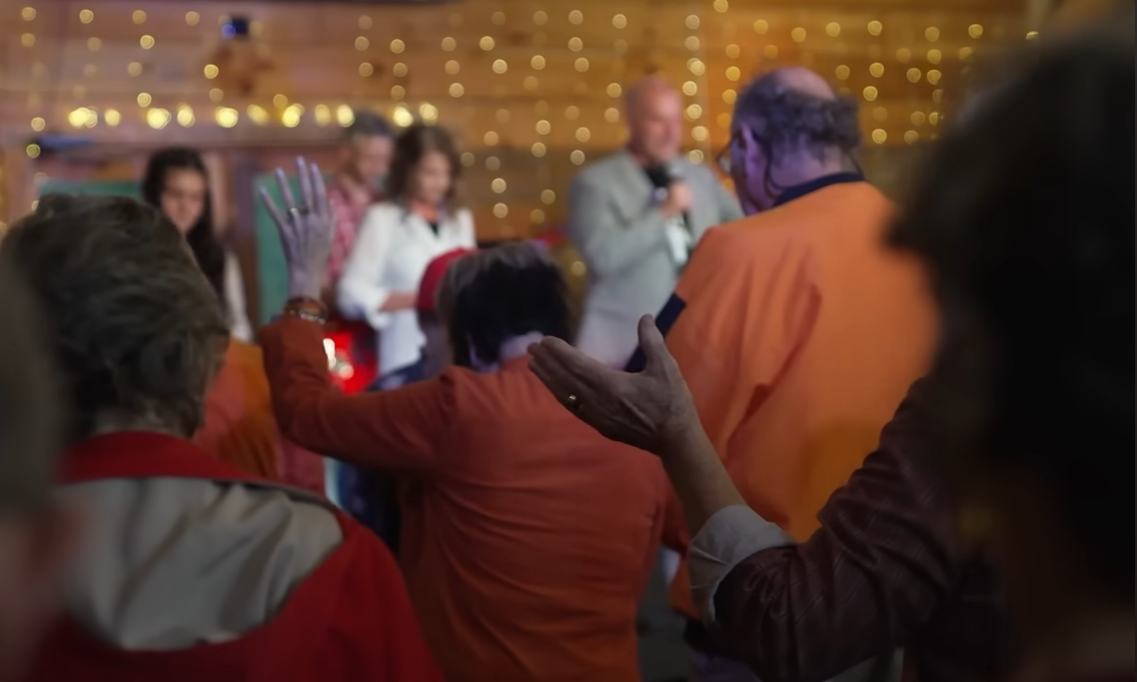
By Rev. Brandan Robertson | QUEENS, N.Y. – Nex Benedict is dead, and far too many American evangelicals are silent. On one hand, this is not surprising at all. We’ve come to expect that those who claim the name of Jesus to not respond to anything that doesn’t concern their own interests- namely their privilege, power, and wealth.
On the other hand, it is almost unbelievable that anyone who follows the Jesus who said “Let the children come to me” (Matthew 18:3) and who spent his days speaking up for the marginalized and oppressed would not speak up or stand in solidarity with the death of a 16 year old student who was relentlessly bullied and beaten in the bathroom of their school and is now dead.
Even beyond Christian faith and values, the most basic standard of human decency demands that we mourn with those who are mourning, and yet once again, many American evangelicals fail at even this.
At the time of my writing, over a week after Nex’s death, FOX News, the top news source for American evangelicals doesn’t even have one mention of Nex on their website, nor does The Christian Post or Christianity Today.
Instead of highlighting the very real suffering of transgender and non-binary Americans, these networks have chosen to make invisible the suffering of queer people. Nex’s death represents the persistent struggle of non-binary and transgender people across America who face bullying, violence, and discrimination every single day, much of which is motivated by so-called Christian values.
When churches continue to teach that queer people are unnatural, abominations, and intrinsically disordered, the result is millions of Christians stigmatizing, ostracizing, and actively working against queer people.
Anti-queer theology is not just inaccurate, it’s deadly, and it causes tangible harm to millions of queer people around the world every single day.
This is especially true for children who grow up hearing that queer people are sinful in their churches and then act on these beliefs by bullying queer children at their schools. Anti-queer theology is not just inaccurate, it’s deadly, and it causes tangible harm to millions of queer people around the world every single day.
American evangelicals know this. They know that their theology hurts people like Nex and it appears that they don’t care. They won’t even acknowledge the suffering and death of Nex by sharing their story and highlighting their suffering. They won’t take this tragic moment to turn inward and reflect on the way that their teaching and politics perpetuate such harm to queer people like Nex each and every day.
Evangelicals like Oklahoma State Superintendent of Schools Ryan Walters actively work to make the lives of trans and non-binary students more difficult, bans both diversity initiatives and books that mention queer characters, and target queer educators, even pressuring a gay principle to resign for performing as a drag queen outside of school on his personal time.
This sort of harassment and targeting of the queer community is not an aberration for evangelicals- it’s the norm. They seek to use every ounce of power and privilege they can muster to marginalize the queer community because they know that we threaten their grip on American society and challenge some of their deeply held regressive beliefs and values.
And because of this, it’s essential that compassionate and progressive people of faith rise to this moment, honoring Nex’s life by shining a light and demanding accountability for the toxic rhetoric spewed by religious and political leaders and demanding more protections under the law for non-binary and transgender people in our country.
In this moment, all people who align with Jesus’ value of loving our neighbor as ourselves need to think carefully about how we might love and support our trans and non-binary neighbors who are experiencing a great deal of pain in following the death of Nex Benedict. And it is clear the love demands that we honor Nex’s life by speaking up and demanding that those who promote anti-trans rhetoric and ideology be held accountable for the impact it has on the lives of vulnerable trans and non-binary people everywhere.
Beliefs are not neutral and political positions impact the lives of real people across this country. Nex’s tragic death is just the latest evidence of the real-world consequences of anti-queer rhetoric, and the best way to honor their life is commit to fighting with all that we have to expose evangelicalism as the death-dealing, anti-Christ movement that it has become.
****************************************************************************************
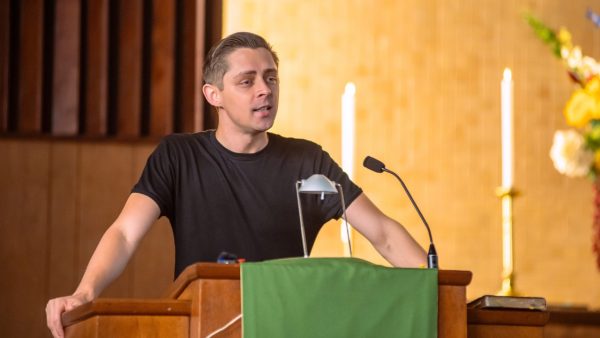
Rev. Brandan Robertson is an author, activist, and theologian, serving as the Executive Director of The Devout Foundation and Pastor of Sunnyside Reformed Church in NYC.
Known as the “TikTok Pastor” with a substantial following, he also hosts the influential podcast “Faith For the Rest of Us” and has penned 20 books, notably “True Inclusion.”
His expertise in progressive spirituality has garnered recognition in major publications like TIME, NBC, and The Washington Post, and accolades from Rolling Stone Magazine. An ardent advocate for LGBTQ+ rights, Robertson collaborates with various organizations dedicated to this cause.
Viewpoint
Protecting our future: Standing united against attacks on trans kids
A coalition of LGBTQ+ and allied organizations address a range of attacks on transgender youth in California
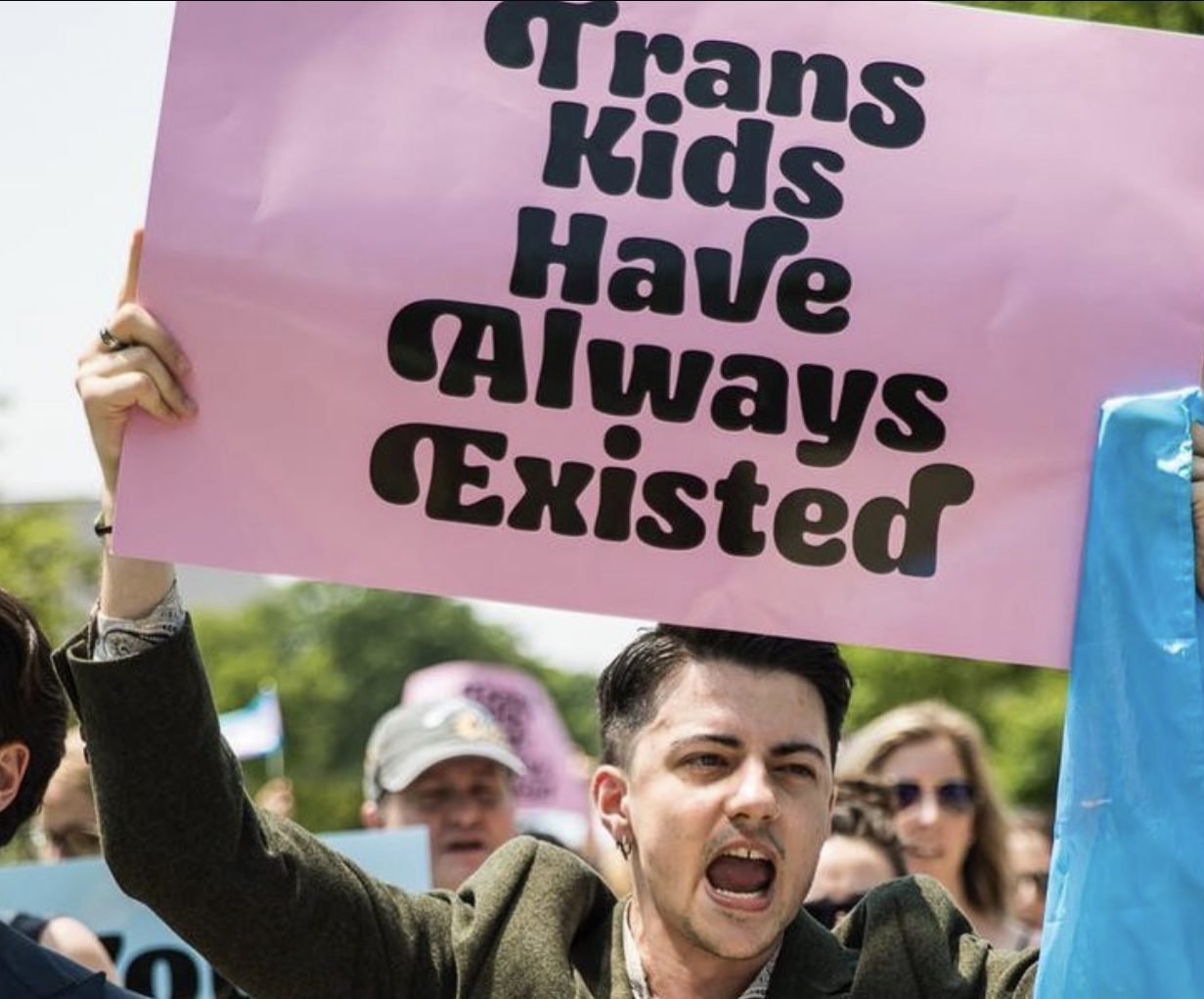
LOS ANGELES – As a coalition of LGBTQ+ and allied organizations, we write to address a range of attacks on transgender youth in California. In 2023 alone, states around the country introduced hundreds of bills restricting the rights of transgender young people.
California has long been one of the most inclusive and welcoming places in the nation for LGBTQ+ people, but even we are now facing a distressing surge of threats against the rights and safety of transgender, gender non-conforming, and intersex youth.
Across our state, far-right school board members are pushing policies that deny students access to essential historical information about LGBTQ+ people, forcibly out transgender students, and undermine the basic rights of transgender youth to use facilities and participate in school activities aligned with their gender identity. These actions jeopardize the safety of all students and undermine the fundamental values of equality and dignity that should be the bedrock of California schools.
And now, many of these same extremists are collecting signatures to advance a ballot measure that would roll back the rights of all transgender youth in California. Their hateful efforts would strip away vital civil rights protections painstakingly established for transgender youth and their families, including their rights to safely be themselves at school, participate in youth sports, access school facilities consistent with their gender identity, and receive life-saving gender-affirming care. The weight of this moment is heavy, and we share the fears and worries expressed by many Californians.
Protecting the rights of every LGBTQ+ person, safeguarding our loved ones, and nurturing an inclusive future for transgender youth are non-negotiable. Our organizations, along with many other partners and allies, have been working tirelessly to address the harm that these attacks have on our youth, and we stand ready to take action whenever and wherever needed to protect our communities.
Nothing is more crucial to us than safeguarding your rights, your loved ones, and your children’s future. We are continuing to actively monitor the proposed ballot measure and stand ready to take any essential action necessary to prevent its advancement. Together, we will overcome these attacks on our community and pave the way for a California where every individual, regardless of gender identity, can continue to thrive in safety and dignity.
Coalition Authors:
Tony Hoang
Executive Director, Equality California
Jodi Hicks
CEO, Planned Parenthood of California
Bamby Salcedo
President and CEO, The TransLatin@ Coalition
Camila Camaleón
President, San Gabriel Valley LGBTQ Center
Ezak Perez
Executive Director, Gender Justice LA
Kathie Moehlig
Executive Director, TransFamily Support Services
Ashley Morris
Organizing Director, ACLU of Northern California
Amanda Goad
Audrey Irmas Director, LGBTQ, Gender & Reproductive Justice Project, ACLU of Southern California
Tai’Rance S. Kelly Sr.
Founder/CEO, Tranz of Anarchii Inc.
Terra Russell-Slavin
Chief Impact Officer, Los Angeles LGBT Center
Imani Rupert-Gordon
Executive Director, National Center for Lesbian Rights
Ebony Harper
Executive Director, California TRANscends
Viewpoint
Rising voices, unifying forces: Two Trans-led organizations will merge to confront a new era of attacks
NCTE and TLDEF to create Advocates for Trans Equality

BY ANDREA HONG MARRA AND RODRIGO HENG-LEHTINEN — In human rights movements, there are moments when the world seems to turn upside down, and advocates find themselves staring at a reality far harsher and more threatening than they seem equipped to combat.
For us, leaders of two organizations focused on protecting and advancing the rights of Transgender people, one of those moments occurred on Feb. 21, 2022, when Texas Attorney General Ken Paxton issued a non-binding legal opinion that allowing Transgender children to receive medically necessary care was tantamount to child abuse under state law. Governor Greg Abbott piled on, urging citizens to report their suspicions of minors receiving this essential healthcare.
Attacks on the rights of Trans people — and especially Trans children — were, of course, not new. Since 2016, we have seen a steadily increasing wave of anti-Trans bills in state legislatures around the country, fueling a barrage of anti-Trans rhetoric and misinformation, as well as rising violence against Trans people.
But this was next level: An undemocratic and draconian assault on Trans families. Our families.
It was also, we realized, a moment of deep reckoning for the Trans rights movement. Our opponents were outgunning us, outspending us, and essentially doing everything in their power to dehumanize Trans people — along with all LGBTQ+ people — in the eyes of the American public.
It was a moment that demanded a bold response.
Within days, the two of us met in person to articulate that response. Our organizations have a long history of working together and informing and strengthening each other’s work. The National Center for Transgender Equality (NCTE) is the leading voice for Trans rights in Washington, D.C. The Transgender Legal Defense and Education Fund (TLDEF) is the preeminent legal advocacy group for Trans people facing discrimination.
Both our organizations had grown tremendously over the years. Both, in fact, were the strongest they’d ever been and were doing great work.
Yet we did not have an immediate answer to the level of escalation in Texas.
We realized we could do much, much more together than we could separately. With unanimous consent from both of our boards, we decided to merge our two organizations into a single powerful force on behalf of Trans people in America. The merger, which becomes official this summer, will create Advocates for Trans Equality (A4TE), a Trans-led national organization with double the resources, double the brilliance and experience, and double the fierce commitment to justice for all Trans people.
With this merger, we will have the power to take bigger, bolder steps to secure Trans equality, which is what this is all about. It is not about saving money or eliminating redundancies. Everyone is keeping their job, and we will continue providing — and strengthening — the life-saving work that NCTE and TLDEF have led these past two decades. We will build upon each other’s strengths to advance human rights for all Trans people.
We are the first generation to wrestle with Trans rights as part of the public discourse. This was simply not happening 20 years ago, even while gay rights were moving ahead. But here we are, and we have a window of perhaps five to 10 years, while public opinion is still flexible, to win the hearts and minds of the American people.
And that’s where A4TE comes in. Together, we will be twice as loud. This merger is about galvanizing our advocacy power on behalf of Trans people, marshaling our diverse strengths, and ensuring Trans people have a real opportunity to participate and succeed in American life. Right now we have a unique opportunity to turn the tide of anti-Trans propaganda and legislation.
It’s also about solidifying leadership by Trans people for Trans people. The need for Trans leadership has never been greater. The two of us will work together with each other and a senior leadership team to oversee this new organization. Notably, we are both Trans leaders of color, which matters because Trans people of color experience greater discrimination and violence. We stand ready to pick up the mantles of our founding mothers, Sylvia Rivera, Marsha P. Johnson, Miss Major, Monica Roberts and so many more and build on the efforts of the many LGBTQ+ and Trans advocacy organizations working across the country. We will show up for the Trans community by leading a modern-day movement to protect and advance the rights of all Trans people.
Paxton’s legal opinion turned out to be a political ploy to help him win re-election amid allegations of bribery and corruption. But that’s not to say we won’t see a repeat of what happened in Texas, there or somewhere else, with potentially greater repercussions.
The difference is that now we are prepared. We are Advocates for Trans Equality. We are ready to lead the fight against Trans oppression. We believe in a future where Trans people are no less than equal and we won’t stop fighting until that future is here.
Andrea “Andy” Hong Marra (she/her) is the executive director of Transgender Legal Defense and Education Fund.
Rodrigo Heng-Lehtinen (he/him) is the executive director of the National Center for Transgender Equality.
Viewpoint
Progressive states must become safe havens for LGBTQ teens
The recent & continued uptick in discriminatory policies will continue to force LGBTQ+ adolescents to flee discriminatory states
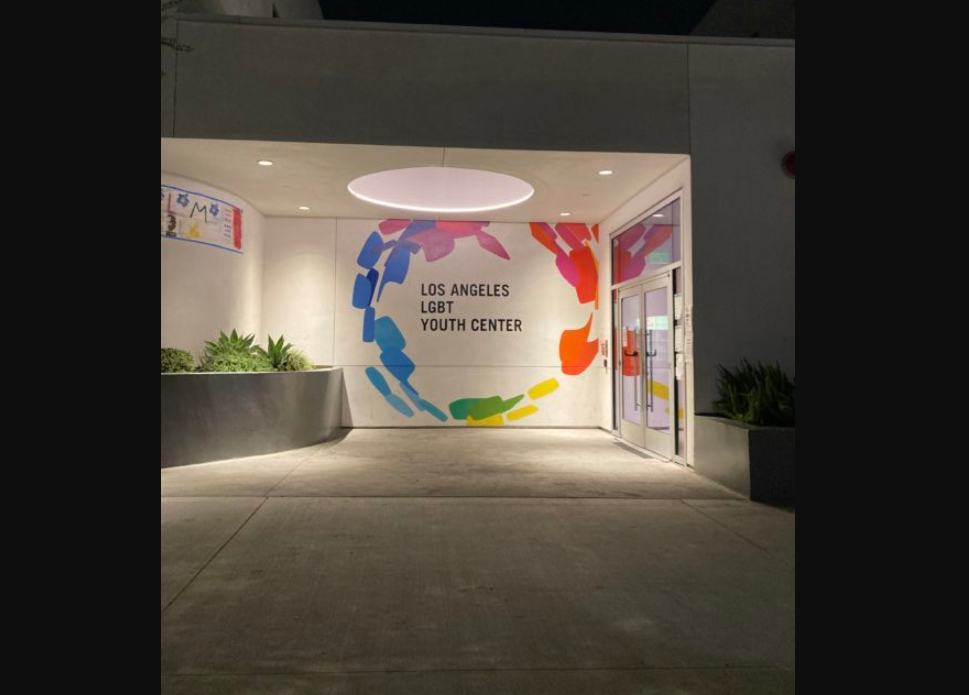
By Morgan Philbin | SAN FRANCISCO, Calif. – It should come as no surprise that the new speaker of the U.S. House of Representatives is anti-LGBTQ+, given the escalation of such sentiments across the nation.
During the 2023 legislative session, more than 550 anti-LGBTQ+ bills were introduced across 43 state houses; more than 200 of these targeted transgender and non-binary people, particularly youth. As of August 2023, more than 80 bills had passed, making it the worst year on record for LGBTQ+ rights.
What happens when these discriminatory policies force LGBTQ+ people to move to more supportive enclaves, which also have some of the most expensive housing in the country and highest per capita rates of homelessness? This question is particularly salient for LGBTQ+ adolescents and young adults who often lack social, familial, and financial support.
Discriminatory bills include those that limit gender-affirming care, require schools to notify parents about children’s preferred pronouns, and Florida’s infamous ‘Don’t Say Gay’ bill. In 2023, nearly 100,000 transgender adolescents ages 13-17 live in states that have banned access to healthcare, sports, or school bathrooms; one-third of transgender youth live in states where gender-affirming care is banned or severely limited.
States like California, Washington, New York, and Massachusetts rank high on LGBTQ+ equality, and continue passing bills to strengthen LGBTQ+ rights (e.g., all-gender restrooms, transgender adolescents’ privacy, foster care). These states also have expensive housing markets and high levels of homelessness. While supportive policies are imperative to counteract the discriminatory legislation enacted nationwide, progressive states must also develop policies and programs to support LGBTQ+ adolescents who are being forced to move there to access healthcare and maintain their physical and mental wellbeing. This can include set-aside funding for LGBTQ+ youth-specific housing subsidies and services and the further integration of housing agencies, government services, and community organizations that serve LGBTQ+ adolescents. We must ensure that LGBTQ+ youth who flee to more inclusive states can build a healthy and full life without fear of housing insecurity.
A 2023 Human Rights Campaign Survey among 14,000 LGBTQ+ adults nationwide asked if people would move, have already moved away or have taken steps to move from a state that passed a gender-affirming care ban: Thirty-four percent of LGBTQ+ adults and 53% of transgender and non-binary adults said they would move. While some LGBTQ+ adolescents have parents with the financial means, and desire, to leave discriminatory states, not all are so lucky: some young adults must move on their own even without social and financial support. Currently, 30% of the homelessness population, and 50% of those experiencing unsheltered homelessness, are in California; it also has the second highest average home price and third most expensive rental prices in the country.
LGBTQ+ young people are disproportionately represented among homeless youth. While 10% of adolescents nationwide are LGBTQ+, they constitute 30-40% of all homeless adolescents; nearly 40% of transgender young adults report a history of homelessness and housing instability.
I have worked with LGBTQ+ adolescents for nearly 20 years and have seen the detrimental impact that discriminatory policies have on all aspects of their health. While people may argue that these young people should remain in their home state, LGBTQ+ adolescents in discriminatory environments are more likely to experience bullying, poor mental health, housing and employment discrimination, and physical violence. These outcomes cause poor health and are also known risk factors for homelessness and housing instability. This suggests that the recent and continued uptick in discriminatory policies will continue to force LGBTQ+ adolescents and young adults to flee discriminatory states, while simultaneously putting them at risk for housing instability.
For more than 50 years, states like California, New York, and Washington have been a refuge for LGBTQ+ individuals who felt unsafe in their homes, cities, and states. I am proud to live in a state like California that has historically welcomed LGBTQ+ individuals. As voters, we must demand policies and programs that extend this welcome to LGBTQ+ young people who are currently under attack. To maximize their health, and give them the future they deserve, we must ensure that housing and related services are available and affordable to LGBTQ+ adolescents and young adults fleeing discriminatory states.
**************************************************************************************

Morgan Philbin is an associate professor in the UCSF Department of Medicine, and a Public Voices Fellow on homelessness with the OpEd Project in partnership with the UCSF Benioff Homelessness and Housing Initiative.
-
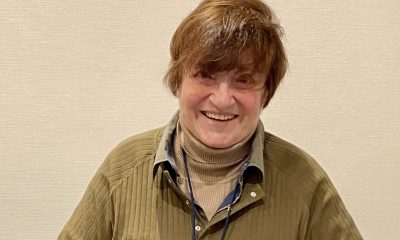
 Arts & Entertainment1 day ago
Arts & Entertainment1 day agoLesbian comic/activist Robin Tyler gets a long overdue ‘Outstanding’ Netflix spotlight
-
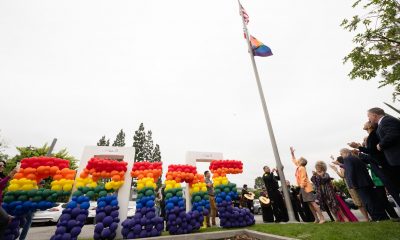
 Los Angeles County4 days ago
Los Angeles County4 days agoDowney official who banned Pride flag elected to lead influential national Latino political group
-
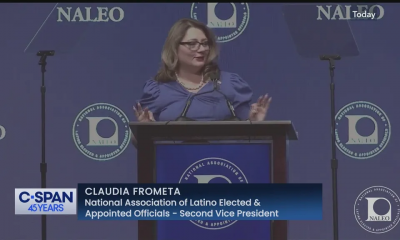
 Los Angeles County2 days ago
Los Angeles County2 days agoHONOR PAC launches petition to oust NALEO’s new president over Pride flag vote
-
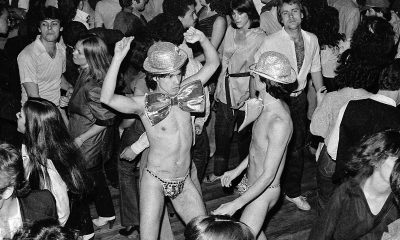
 Television4 days ago
Television4 days agoPBS ‘Disco’ is a Pride party you don’t want to miss
-

 Arts & Entertainment4 days ago
Arts & Entertainment4 days agoNetflix’s ‘Outstanding’ Documentary Reveals Queer Comedy Icons’ Impact on LGBTQ+ Rights
-
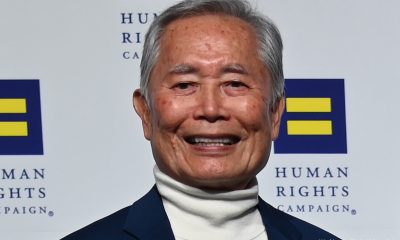
 History4 days ago
History4 days agoLGBTQ+ History Archive Gains Momentum: Personal Stories Project Partners with George Takei
-

 a&e features4 days ago
a&e features4 days agoGMCLA’s ‘Solid Gold’ Gala: Honoring LGBTQ+ Champions with Iconic Diva Tributes
-

 Africa4 days ago
Africa4 days agoProminent South African activist elected to country’s parliament
-

 European Union2 days ago
European Union2 days agoGay US ambassador to Hungary marches in Budapest Pride parade
-

 Autos3 days ago
Autos3 days agoAll charged up: BMW i7 xDrive6

